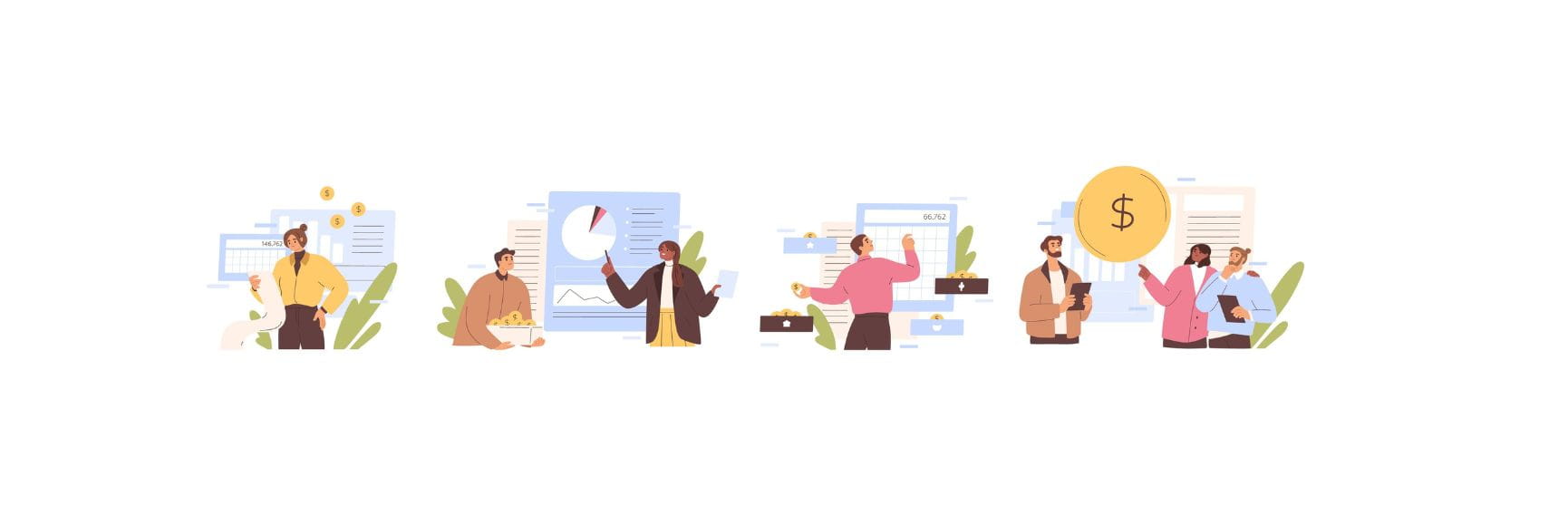
Posted by Suhas Joshi[1]
“Chaos empire sits. And by decision more embroils the fray, by which he reigns; next him high arbiter chance governs all.”
John Milton’s words in his presciently named Paradise Lost resound in my ears as I walk along empty Bangkok roads looking for milk and eggs and, if the Gods are kind, some hand sanitizer or, as a last resort, I pray to Vishnu for some alcohol to use instead. As I return home with nothing, I wonder if the alcohol meant for my stomach could be used on my hands. That led me to think of the small businesses that have closed to meet the threat posed by COVID-19 and their unregistered employees. How indeed to help vulnerable sections of population in financial hardship in the developing world where the absence of good data and PFM systems makes this task even more difficult?
It seemed like a penetrating insight when people said the rich are different, but this crisis has given us a rather different perspective, where all suffer equally, albeit differently. The newspapers are full of headlines that say “Truckers and warehouse workers at UPS and FedEx feel they have no choice but to keep showing up, even with coronavirus-like symptoms.” Or “As coronavirus infections explode in the U.S., hospitals could be forced to make harrowing choices if pushed to the brink. Planning is already underway[2]”. Pushed to the brink the harrowing choices the “poor and wretched of the earth” must face daily are now presenting themselves to the developed world too, but with slightly different perspectives. This requires immediate and innovative thinking at the policy level and actions that bring much needed relief to the most vulnerable sections of society.
These vulnerable groups include many small and informal businesses. Governments need to ensure that tax, PFM and cash management systems are responsive to their most immediate needs. This not only means close monitoring of government cash balances but redirecting resources where needed, especially where decentralized or manual payment systems are prevalent. That, in turn, needs to be backed by good delivery systems. In countries with large numbers of uneducated and undocumented informal sector workers, governments need to think how to ensure direct deposits are made with better beneficiary authentication and minimize chances of fraud prevention.
Nevertheless, it might be possible to apply mobile technologies in other countries too. Here’s a possible approach. In today’s world most people or families have a mobile phone. Governments could make transfers through this mechanism by using a quick verification process. As a first step mobile companies could send a text message to each subscriber asking them, within a given time period (say 7 days), to register the number with some readily available documentation such as a national ID card or birth certificate. This verification process would be designed to ensure that only vulnerable and deserving sections of society avail of the benefits. Groups such as taxpayers and government employees could be excluded. Unverified numbers would be disconnected to ensure that duplicate payments or payments to unverified persons are not made. Governments could develop separate rules for individuals to have a second or third mobile number provided the data base ensures that it clearly records these numbers as such.
Second, funds Many countries, especially large ones, and countries with a federal structure, are implementing similar payment systems not just centrally or federally but also through regional or sub-national governments to ensure better coverage.
Third, emergency schemes such as this could create a huge exposure to financial irregularity and fraud, especially if the government’s normal approval and control processes are streamlined or relaxed. It would be essential for governments to establish efficient mechanisms to track expenditures made at all levels of government, to publish such information, and to subject the cash transfer scheme to internal and external audit. Accountability in the use of government funds is critically important, if not immediately, at least once the crisis is over. Internal auditors can carry out simple checks in the interim to ensure that systems are performing, that databases are verified properly, and a complaint mechanism is functioning effectively. Systems need to be set up to track and analyze how the resources were spent and to ensure that, if advantage was taken of the crisis mechanisms, to fix responsibility for any misappropriation or diversion of funds.
To quote again from Milton “The Prison of his Tyranny, who reigns by our delay? No, let us rather choose” to improve PFM systems early!
This article is part of a series related to the Coronavirus Crisis. All of our articles covering the topic can be found on our PFM Blog Coronavirus Articles page.
[1] Suhas Joshi is the IMF’s Regional Treasury Advisor based at the Capacity Development Office in Thailand (CDOT).
[2] New York Times, 22 March 2020.
Note: The posts on the IMF PFM Blog should not be reported as representing the views of the IMF. The views expressed are those of the authors and do not necessarily represent those of the IMF or IMF policy.







